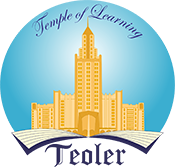RMO or Regional Math Olympiad is the second stage of Mathematics talent search examination that is conducted in India. The exam is conducted by Regional Coordinator under the guidance of HBCSE, Mumbai. The regional coordinator is in charge of conducting evaluations of the answer sheets. After checking the answers of the students the results are sent to HBCSE where it is declared online.
The candidates who do well in RMO are called for the Indian National Mathematics Olympiad (INMO). The candidates who qualify in INMO are given training and sent for the International Olympiad.
Students who qualify PRMO will be eligible for RMO.
Only Indian citizens are eligible to apply for the Olympiad Examination. The applicants must be born on or before 1 August 2020. As per the orders of the Madras High Court, students with OCI (Overseas Citizens of India) cards are eligible for all the stages of the Mathematics Olympiad, other than the final stage of representing India in the final International Mathematical Olympiad.
The students studying in Class IX to Class XII are eligible to apply for the Mathematics Olympiad. However, Regional Coordinators allow students of Class VIII with exceptional mathematical skills to write the examination. The first round of examination is the Pre-RMO (Pre- Regional Mathematical Olympiad). Depending on the performance of the candidates, around 300 students from Class VIII to Class XI and 60 students from Class XII are selected for the RMO (second round) examination.
It is the responsibility of the students to check if they satisfy the eligibility condition for every stage of the Mathematical Olympiad examination. If at any level of the examination, if it is found that the candidate does not meet the eligibility criteria he/she will be disqualified from the program.
The Mathematical Olympiad Program in India is conducted by the HBCSE on behalf of National Board for Higher Mathematics. The students who perform well will participate in the International Mathematical Olympiad.
Stage 1 – Pre-Regional Mathematics Olympiad (PRMO)
The Pre-Regional Mathematics Olympiad (PRMO) is conducted for a duration of three hours. There will be 30 questions asked in the examination and the answer to each question is a single-digit number or a two-digit number. The question paper will be in English/Hindi.
Stage 2 – Regional Mathematical Olympiad (RMO)
This examination is conducted in a small number of centres in the region. The duration of the examination is 3 hours with 6 questions. The examination is conducted in English/Hindi or sometimes in other regional languages.
Stage 3 – Indian National Mathematical Olympiad (INMO)
The best performers from the RMO are selected for the Indian National Mathematical Olympiad. Approximately 900 students get selected for this examination.
Stage 4 – International Mathematical Olympiad Training Camp (IMOTC)
The toppers from INMO (approximately 35) are invited to HBCSE for the International Mathematical Olympiad Training Camp (IMOTC). Several tests are conducted during this camp. The best 6 performers are selected for the next stage.
Stage 5 – Pre Departure Camp
The selected students will undergo an extensive training programme for 8-10 days at HBCSE before they leave for the IMO.
Stage 6 – International Mathematical Olympiad (IMO)
The best 6 students from India will participate in International Mathematical Olympiad.
The difficulty level of the examination is extremely high. The syllabus includes topics from Class IX to Class XII. The problems are usually from these topics:- Algebra, Number theory, Geometry and Combinatorics. Some of the important topics are listed below. The topics like calculus and statistics are not included in the syllabus.


